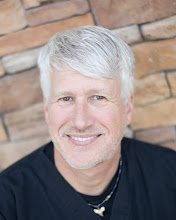For many people who have suffered with Obstructive Sleep Apnea (OSA) for years, the only treatment that was originally advised was a Continuous Positive Air Pressure (CPAP) device. However, since the early days of sleep medicine there have been tremendous advances made in both diagnosis and treatment of OSA.
That's great news for individuals who suffer with OSA because it used to be entire diagnosis and treatment protocol was a great example of "when the only tool you have is a hammer, every problem resembles a nail". By that I mean that if you had the symptoms of OSA, the solution was automatically a CPAP.
The problem with that is that CPAPs are uncomfortable for most users and many try them, only to leave them on the nightstand or in the closet where they are never used. Statistical surveys indicate that over 60% of people that are advised to wear a CPAP stop wearing it do to comfort issues. That, of course, means that the CPAP device is only used by 40% of people who own them. Any treatment that has a 60% failure rate deserves to be analyzed to see how that situation can be improved.
For many OSA patients, the best option can be an oral appliance. This situation is now even more of an issue as there has been an FDA recall on many CPAP devices that are manufactured by Philips Respironics.
According to the FDA:
"Philips Respironics, Inc., is recalling its Continuous and Non-Continuous Ventilators due to the polyester-based polyurethane (PE-PUR) sound abatement foam, which is used to reduce sound and vibration in these affected devices, which may break down and potentially enter the device’s air pathway. If this occurs, black debris from the foam or certain chemicals released into the device’s air pathway may be inhaled or swallowed by the person using the device. The exposure to debris or chemicals could cause serious adverse events in patients such as irritation (skin, eye, and respiratory tract), inflammation, headache, asthma, hypersensitivity, nausea/vomiting, adverse effects to other organs (e.g., kidneys and liver) and toxic carcinogenic effects."
So... in addition to the comfort issue we now have a potential health issue as well. One of the reasons that I am so passionate about OSA and its treatment is that I'm not only in dentistry, I'm also one of the millions of patients who deal with OSA in my own life. When I discovered I was afflicted with the sleep disorder and began treatment, I could not believe the change it made in my life.
I was originally prescribed a CPAP and then went to an oral appliance which I use in combination with my CPAP. When I learned of the recall I explored my options only to learn that there is an incredibly long waiting list to receive a new machine. OSA can be life threatening and I am disappointed to learn that life saving devices have a long waiting list.
The reason for this post is to encourage those of you who are using one of the recalled CPAP devices to contact your dental office to see if they can help. More and more dental professionals are learning how to treat OSA and there may very well be a solution for you that does not involve a CPAP.
I really enjoy treating OSA in my practice as I know the benefits it can bring. I'm a living testament to that!
If you would like to learn more about the FDA Recall and the devices involved, here is a link to the FDA website that contains lots of info and more links to even more information.





No comments:
Post a Comment